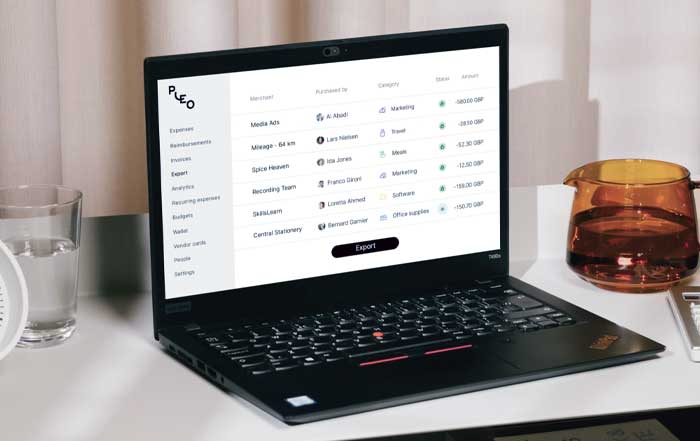The fintech landscape in Finland is characterized by innovation, rapid growth, and a diverse array of services that cater to both consumers and businesses. As of 2024, the industry has solidified its position as a vital component of the Finnish economy, with a wide range of companies offering unique solutions designed to enhance financial transactions, management, and accessibility. This article explores the top ten fintech companies in Finland, delving into their histories, products, services, market shares, expected profits and revenues for 2024, employee counts, leadership structures, and future growth projections for 2025.
1. ePassi
Founded in 2015, ePassi has emerged as a leader in the Finnish fintech sector, primarily focusing on mobile payments for employee benefits. The company revolutionized how businesses manage employee perks by providing a seamless digital platform that allows users to access various benefits, including sports, culture, and wellness services. By 2022, ePassi reported revenues of €416 million, marking a significant increase from €289 million in 2021. This impressive growth trajectory is expected to continue, with projections estimating revenues to reach approximately €500 million in 2024.
ePassi's leadership is spearheaded by CEO and co-founder, Jukka Rantala, who has been instrumental in driving the company's innovative approach to employee benefits. With a workforce of around 200 employees, ePassi has established itself as a critical player in the growing mobile payments space, which is projected to expand further as more companies adopt digital solutions for employee management.
2. Multitude
Multitude operates a multifaceted business model that encompasses consumer and business lending, alongside a shopping and financing app. Established in 2014, the company has seen its revenues grow substantially, reaching €200 million in 2022, with expectations to surpass €250 million in 2024. Multitude's diverse offerings include personal loans, credit solutions, and innovative financial products tailored to meet the needs of both individual and corporate clients.
The leadership team, led by CEO and co-founder, Jouni Kallio, emphasizes a customer-centric approach, which has been pivotal in the company's success. With approximately 300 employees, Multitude is well-positioned to capitalize on the increasing demand for flexible financing options, particularly in a post-pandemic economy where consumers are seeking more adaptable financial solutions.
3. Basware
Basware, founded in 1985, is a pioneer in the realm of financial software, specializing in automating finance and procurement processes for businesses. The company has established a robust reputation for its innovative solutions that streamline invoicing, procurement, and payment processes. In 2022, Basware reported revenues of €160 million, with projections indicating a potential increase to €180 million in 2024.
Under the leadership of CEO, Esa Tihilä, Basware has expanded its global footprint, serving clients across various industries. The company employs around 1,000 individuals and is recognized for its commitment to sustainability and ethical business practices. As the demand for digital transformation in finance continues to grow, Basware is poised for significant growth, with expectations to enhance its product offerings and expand its market share further.
4. Paytrail
Established in 2007, Paytrail has become a prominent digital payment platform in Finland, facilitating online transactions for businesses of all sizes. The company has experienced consistent growth, with revenues increasing from €32.6 million in 2021 to an estimated €40 million in 2024. Paytrail's services include payment processing, fraud prevention, and integration with various e-commerce platforms, making it a preferred choice for merchants looking to enhance their online payment capabilities.
Led by CEO, Juhani Sihvonen, Paytrail employs approximately 150 individuals and has garnered a reputation for its user-friendly interface and reliable service. The company's strategic acquisitions, such as Checkout Finland, have further strengthened its market position, allowing Paytrail to offer a more comprehensive suite of services. As the e-commerce sector continues to grow, Paytrail is well-positioned to capture a larger market share and expand its service offerings.
5. Nomentia
Nomentia, founded in 2016, specializes in cloud treasury and cash management solutions, catering to businesses seeking to optimize their financial operations. The company has reported impressive revenue growth, with figures rising from €21.9 million in 2021 to an expected €30 million in 2024. Nomentia's platform offers a range of services, including cash forecasting, payment automation, and risk management, making it an essential tool for financial professionals.
The leadership team, headed by CEO, Riku Järvinen, emphasizes innovation and customer satisfaction, which has contributed to the company's rapid growth. Nomentia employs around 100 individuals and is recognized for its commitment to providing cutting-edge solutions that address the evolving needs of its clients. As businesses increasingly prioritize digital transformation, Nomentia is expected to experience continued growth and expansion in the coming years.
Top 10 Finnish Fintech Companies
6. Administer
Administer, established in 2010, provides digital financial management services, focusing on streamlining accounting and reporting processes for businesses. The company's revenues surged from €41.9 million in 2021 to an estimated €60 million in 2024, reflecting the growing demand for efficient financial management solutions. Administer's platform offers a comprehensive suite of tools for invoicing, expense tracking, and financial reporting, making it a valuable resource for companies seeking to enhance their financial operations.
Under the leadership of CEO, Jani Kallio, Administer has expanded its client base and workforce, employing approximately 200 individuals. The company's commitment to innovation and customer service has positioned it as a key player in the Finnish fintech landscape. As businesses continue to seek ways to improve their financial management processes, Administer is well-equipped to meet this demand and drive further growth.
7. Crosskey
Founded in 2007, Crosskey is a technology service provider specializing in solutions for the banking industry. The company has established a strong presence in the Finnish market, with revenues projected to reach €50 million in 2024. Crosskey's offerings include core banking systems, payment solutions, and digital banking services, making it a critical partner for financial institutions looking to modernize their operations.
The leadership team, led by CEO, Jari Kivimäki, focuses on delivering innovative technology solutions that enhance the customer experience. With a workforce of around 300 employees, Crosskey is well-positioned to capitalize on the growing demand for digital banking solutions. As the financial sector continues to evolve, Crosskey's expertise in technology and banking will be instrumental in driving its future growth.
8. Accountor Finago (Accountor Finago is a part of FMS)
Accountor Finago, established in 1986, is a leading software provider known for its financial management software, Procountor. The company has seen steady revenue growth, with projections estimating revenues of €70 million in 2024. Accountor Finago's software solutions cater to businesses of all sizes, offering tools for accounting, payroll, and invoicing.
Under the leadership of CEO, Jukka Kallio, Accountor Finago employs approximately 400 individuals and has built a strong reputation for its reliable and user-friendly software. The company's commitment to innovation and customer support has contributed to its success in the competitive fintech landscape. As businesses increasingly adopt digital solutions for financial management, Accountor Finago is expected to continue its growth trajectory.
9. Saldo
Saldo Finance, founded in 2016, specializes in automated credit solutions for consumers and small to medium-sized enterprises (SMEs). The company has experienced significant growth, with revenues projected to reach €25 million in 2024. Saldo's platform offers a range of credit products, including personal loans and business financing, designed to meet the diverse needs of its clients.
Led by CEO, Joonas Nykänen, Saldo employs around 100 individuals and has established itself as a trusted provider of credit solutions in the Finnish market. The company's focus on automation and customer service has been key to its success, allowing it to streamline the lending process and enhance the customer experience. As the demand for credit solutions continues to rise, Saldo is well-positioned to capture a larger share of the market.
10. Profit Software (Profit Software rebrands as Evitec)
Profit Software, also known as Evitec, provides system solutions and consulting services to the financial industry. Founded in 2006, the company has seen steady revenue growth, with projections estimating revenues of €30 million in 2024. Profit Software's offerings include risk management solutions, portfolio management systems, and consulting services designed to help financial institutions optimize their operations.
Under the leadership of CEO, Jari Kallio, Profit Software employs approximately 150 individuals and has built a strong reputation for its expertise in financial technology. The company's commitment to delivering tailored solutions that meet the specific needs of its clients has positioned it as a key player in the Finnish fintech landscape. As the financial industry continues to evolve, Profit Software is expected to experience continued growth and expansion.
Finland Finale
The Finnish fintech sector is poised for continued growth and innovation, with the top ten companies leading the charge in providing cutting-edge solutions that cater to the diverse needs of consumers and businesses alike. As the industry evolves, these companies are expected to adapt and expand their offerings, capitalizing on emerging trends and technologies to drive their success in the coming years. With robust leadership, a commitment to innovation, and a focus on customer satisfaction, the future looks bright for Finland's fintech landscape as it continues to solidify its position as a global leader in financial technology.




